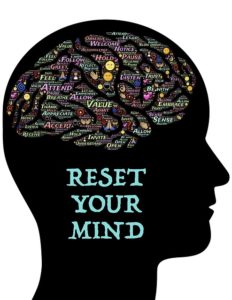The difference between the critical thinker and the un-critical one is not a difference in IQ, or mental strength, or some sort of genetic privileges of the brain. It is a difference in practicing questioning, versus little questioning, or not questioning at all, or taking life at face value.
The critical thinker is always in the mental gym, exercising. The un-critical thinker is not very fit. But not very fit people are not necessarily ill. They get by in different ways, usually with some disadvantage.
The critical thinker is restless. Like the gym goer or the daily jogger, he or she has butterflies in their stomach as soon as they’re not exercising. These are mental butterflies, signs of restlessness, feeling uncomfortable with the status quo, the un-questioned life, if you want to get a bit philosophical.
Critical thinking can be learnt. As I said before, it’s like going to the gym. It’s a praxis, exercising, getting fit. The main gym exercises of the critical thinking are questions. The critical thinker is always learning (and practicing) how to ask questions. The other type of critical thinking fitness has to do with avoiding mind traps, mental tricks that we generate all the time. These are the so called fallacies and cognitive biases. Again, one can learn to deal with them.
The good critical thinker needs also a good dose of emotional and social intelligence to understand that ‘asking questions’, and, in particular, ‘asking questions very frequently’ as a habit, can be very, very annoying to others. Yes, critical thinkers can be a pain. It’s so much easier not to ask too many questions!
But if you have emotionally-intelligent critical thinkers in the organization, you are very lucky. You won’t be completely immune to failure. But you will have constant fresh air. A healthy environment with a constant flow of fresh air is a gem, a privilege.
There is a quote by H L Mencken (1880-1956) that says: “There is always a well-known solution to every human problem — neat, plausible, and wrong.” The critical thinker is gently aware of this. He is also aware that he or she may be the one providing that neat and plausible solution.
Critical thinking has wonderful unintended consequences: being humble is one. Free from the heavy load and duty of being always right, a burden that the uncritical thinker tends to bear, the critical one is agile and nimble.
If you could see your organization as a school of critical thinking, no matter which industry, no matter what size, you’d be on the winning track.
______________________________________________________________________________________________________________________________________
Critical Thinking Accelerator from The Chalfont Project:
Renew, transform, re-invent the way you do things. Organizations today need to look at better ways, alternative and innovative ways to change the status quo. It’s not about being radical for the sake of it. Only if you try radical ways will you be in a better position to find your ‘fit for purpose’ goals.
As Michelangelo said: ‘The greater danger for most of us lies not in setting our aim too high and falling short, but in setting our aim too low, and achieving our mark’. He was a radical in the way we talk about it.
_____________________
At The Chalfont Project, we have crafted a short intervention on Critical Thinking:
- Do you feel like you’re missing the time to reflect and makes changes?
- Do you feel like your team has fallen into bad habits, business is unproductive and no one takes ownership to change it?
In this short intervention we teach you and your team Critical Thinking methods and questions that will help you focus your time on the things that matter, make good and fair decisions and escape the dangers of human biases. We will also help you apply these methods to your everyday challenges in your organization.
You will learn about strategy acid tests and many mind fallacies, including various biases, and the practical Critical Thinking methods that you can use to address these.

This high impact, short intervention will:
- – challenge ways of thinking
- – provide immediate and trackable actions
- – drive change
- – develop a better way of functioning across the team, department or organization.
Contact us to find out more information or discuss how we can support your business.



Would you like to comment?